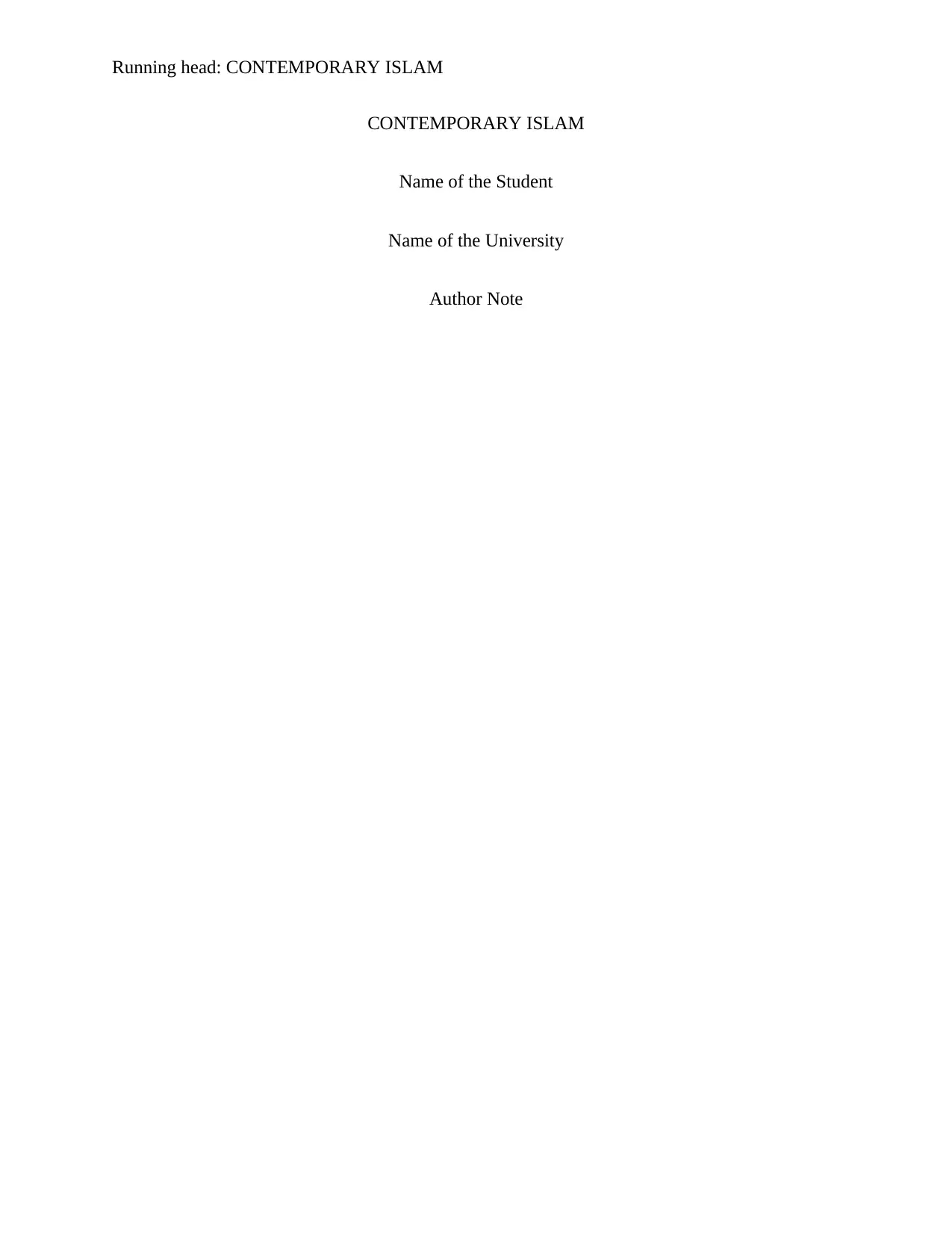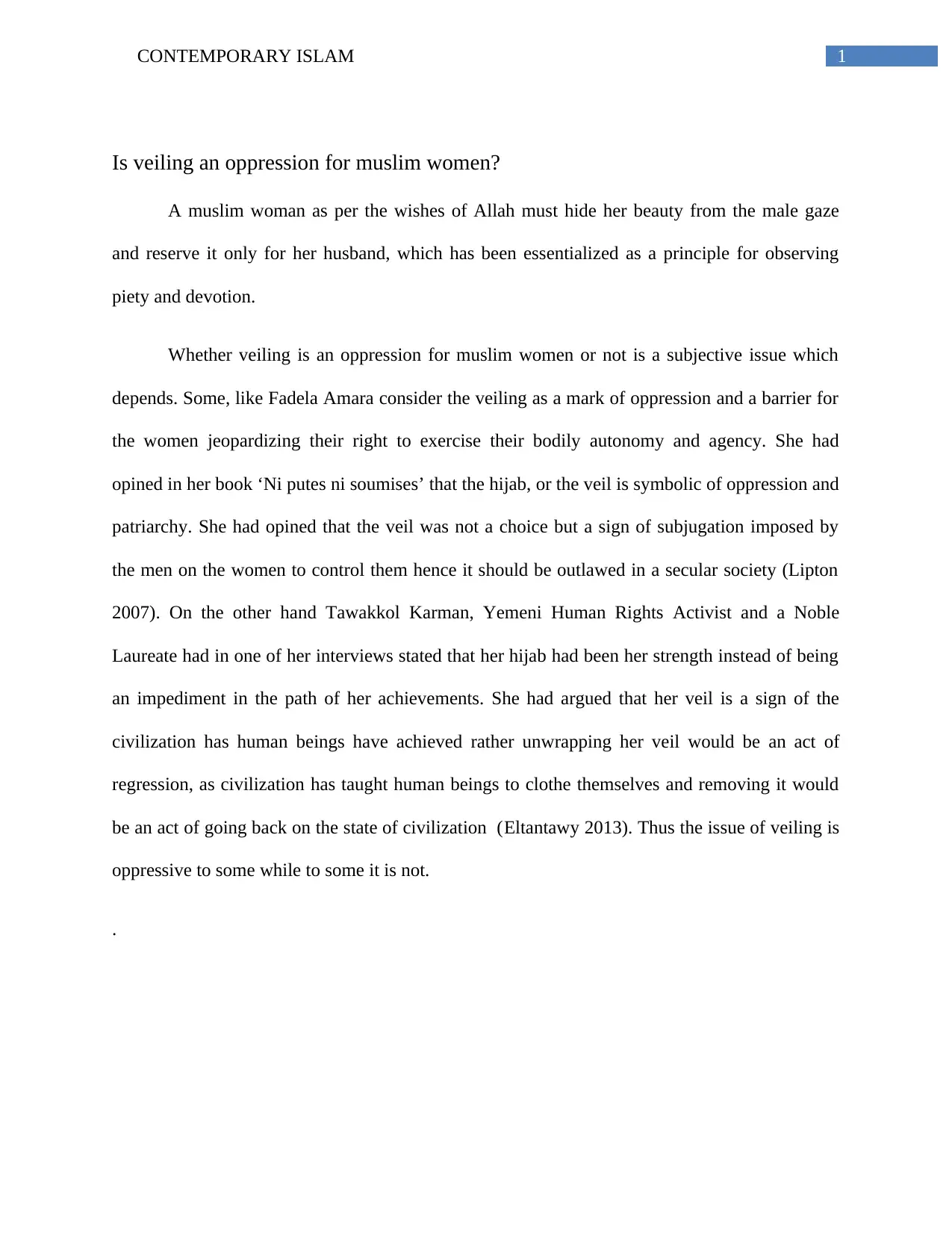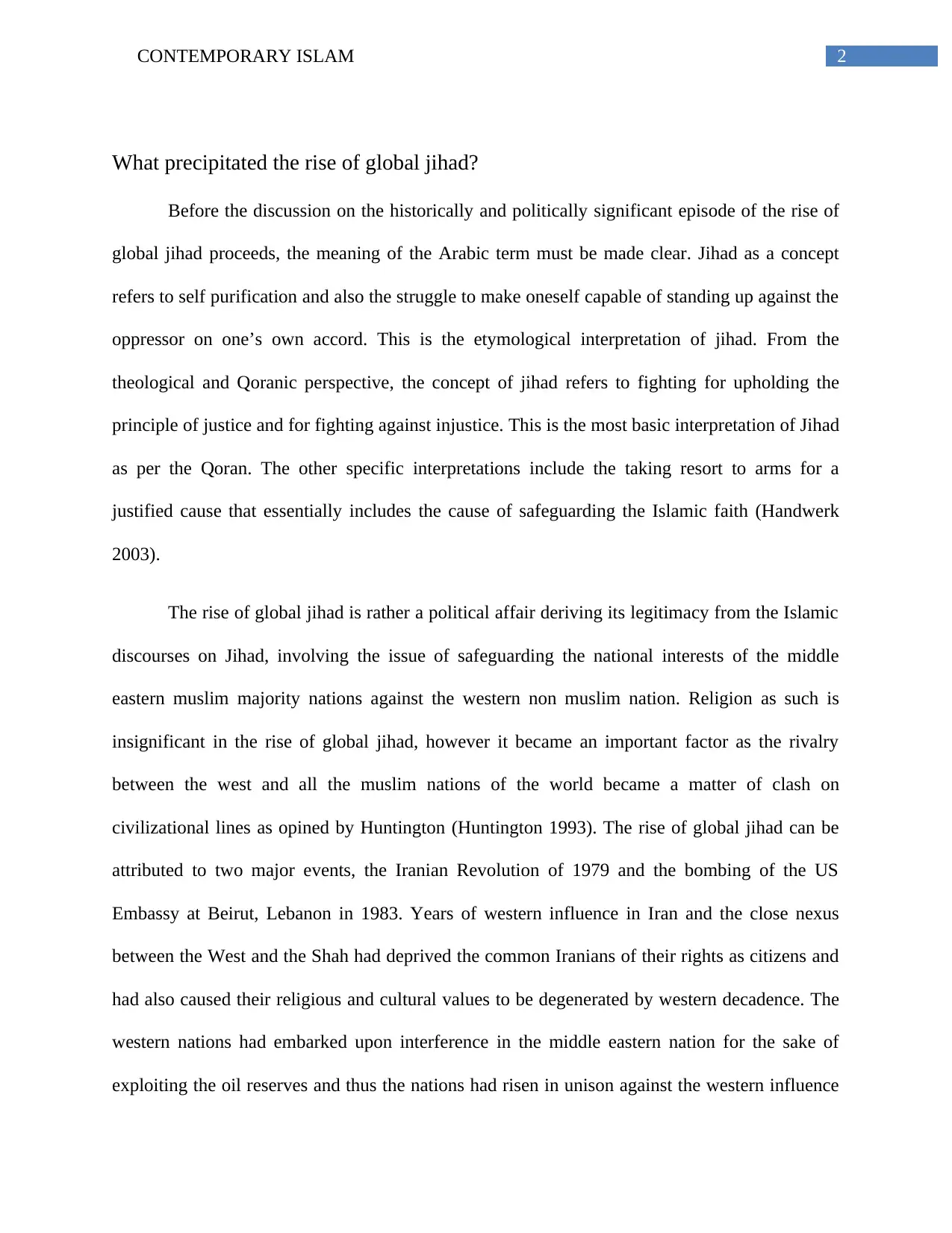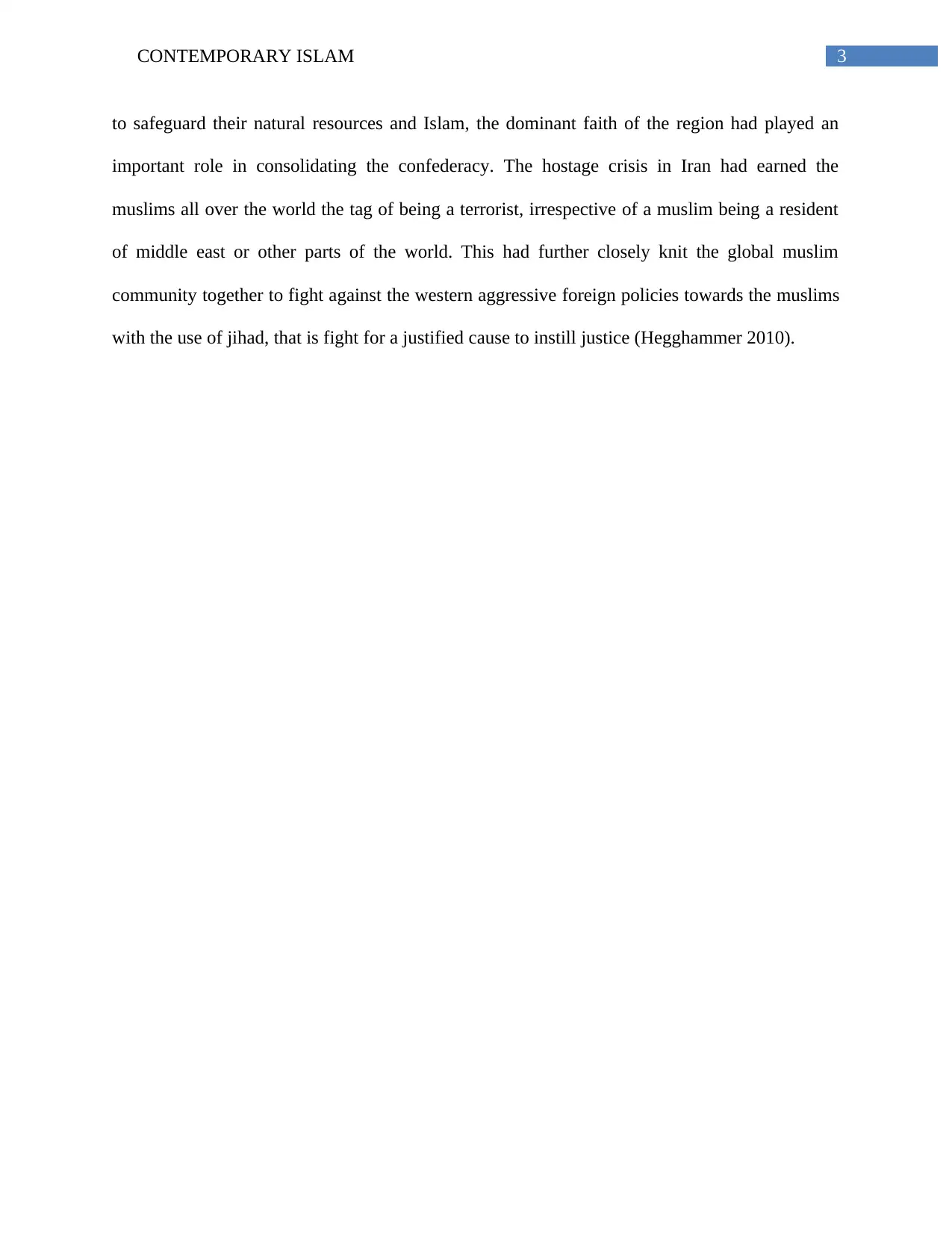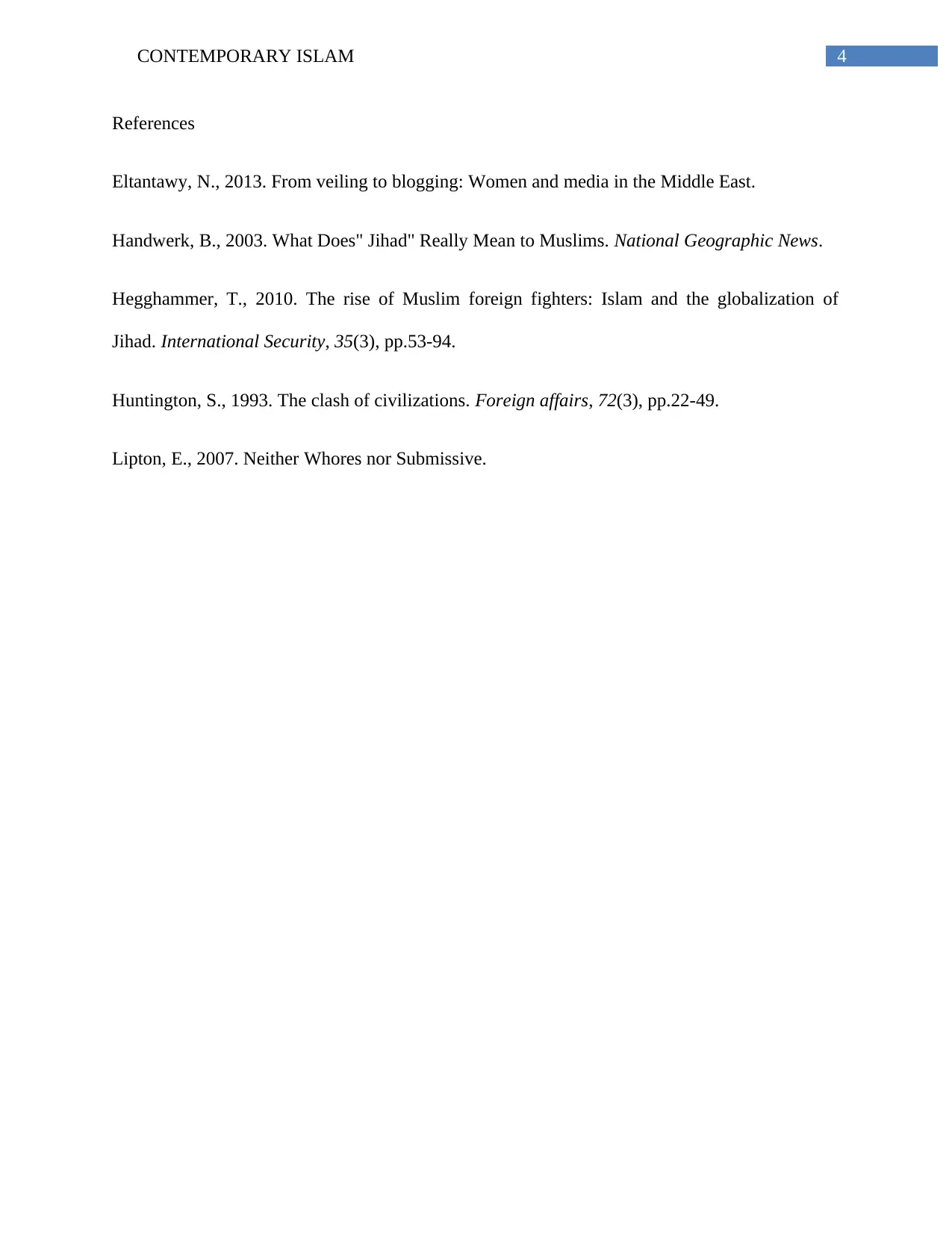Whether veiling is an oppression for muslim women or not is a subjective issue which depends. Some, like Fadela Amara consider the veiling as a mark of oppression and a barrier for the women jeopardizing their right to exercise their bodily autonomy and agency. She had opined in her book ‘Ni putes ni soumises’ that the hijab, or the veil is symbolic of oppression and patriarchy. She had opined that the veil was not a choice but a sign of subjugation imposed by the men on the women to control them hence it should be outlawed in a secular society (Lipton 2007). On the other hand Tawakkol Karman, Yemeni Human Rights Activist and a Noble Laureate had in one of her interviews stated that her hijab had been her strength instead of being an impediment in the path of her achievements. She had argued that her veil is a sign of the civilization has human beings have achieved rather unwrapping her veil would be an act of regression, as civilization has taught human beings to clothe themselves and removing it would be an act of going back on the state of civilization (Eltantawy 2013). Thus the issue of veiling is oppressive to some while to some it is not.
![[object Object]](/_next/static/media/star-bottom.7253800d.svg)
![[object Object]](/_next/static/media/star-bottom.7253800d.svg)
